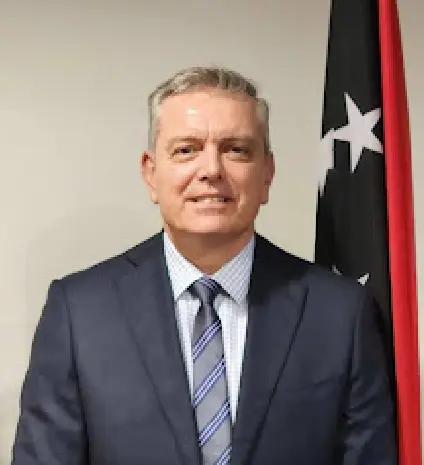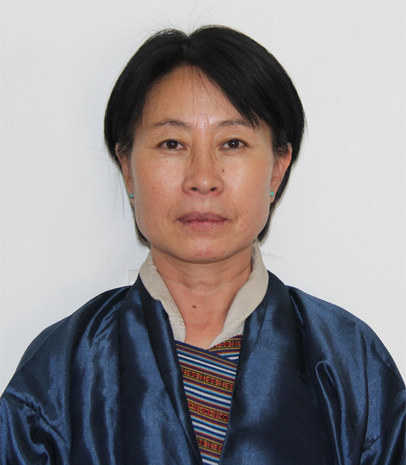Venue: Le Meridien, Thimphu
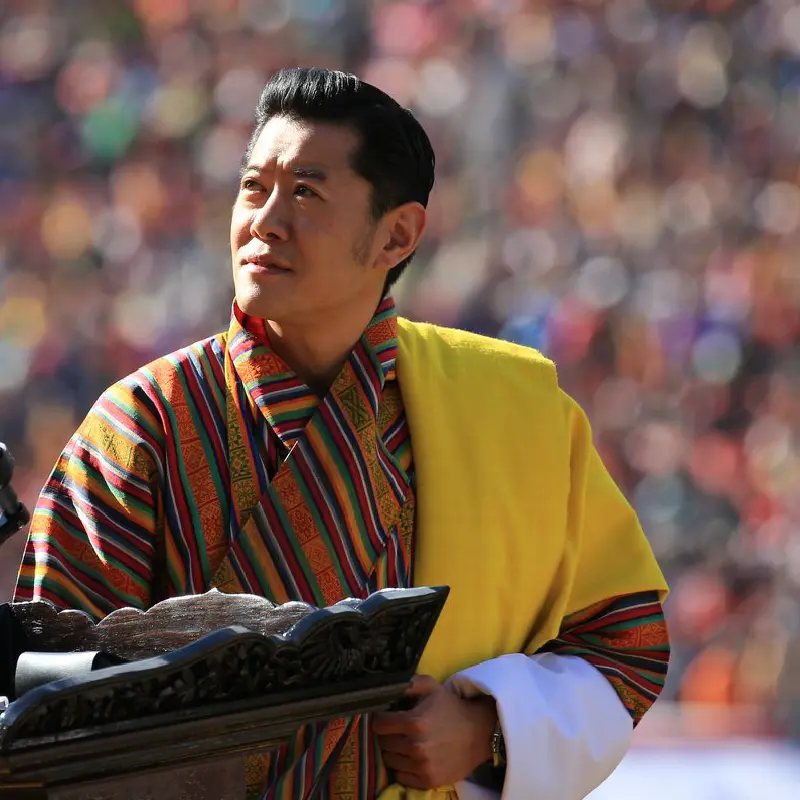
The ADB and OECD, in collaboration with the Royal Government of Bhutan Anti-Corruption Commission, are organising the ACI 2024 Seminar on Government Incentives for Corporate Anti-Corruption Compliance in Thimphu, Bhutan on 25-27 September 2024.
The ACI 2024 Seminar brings together anti-corruption experts from the governments of its 34 member economies, as well as representatives from civil society, international organisations, and the private sector.The meetings aims to share good practices and build the capacities of participants in developing government policies regarding incentives.
The session will examine the landscape of international anti-corruption and business integrity standards, such as the OECD Anti-Bribery Convention and its 2021 Anti-Bribery Recommendation, the OECD Recommendation on Public Integrity, and the Multilateral Development Bank General Principles for Business Integrity Programmes.

Senior Manager
Organisation for Economic Co-operation and Development

Team Lead, Anti-Corruption Hub for Southeast Asia and the Pacific
UNODC

Advisor Office of Head
Asian Development Bank

Assistant Director
Corrupt Practices Investigation Bureau
In developing a clean business environment, assessing risks related to business integrity is crucial. This session will discuss integrity risk assessment, particularly in areas such as international business transactions, public procurement, and state-owned enterprises.

Head of Anti-Corruption and Integrity in Government Division
Directorate for Public Governance, OECD

Resident Representative and Senior Economist for Bhutan
World Bank Country Office

Country Director, Asia Regional Office in the Philippines
Center for International Private Enterprise
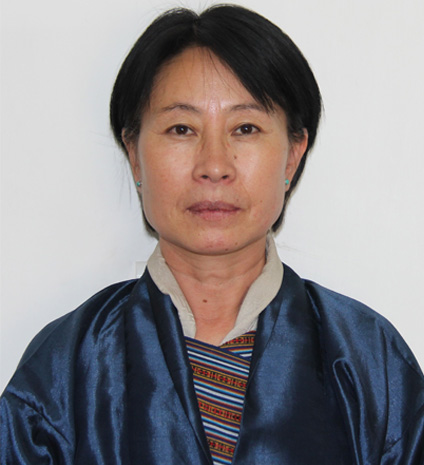
Hon'ble Secretary
Ministry of Industry, Commerce and Employment

President
Construction Association of Bhutan

CEO
Druk Holding and Investments
This session will discuss practical policy instruments and implementation mechanisms that effectively support business integrity through robust policy tools and mechanisms.
Discussions will focus on implementing ethical standards such as anti-corruption compliance programmes or measures (especially for SMEs), codes of conduct, establishing comprehensive internal control systems, implementing whistleblower protection mechanisms and enforcing anti-corruption regulations.

Policy Analyst and Manager for Asia-Pacific and Europe
OECD

Chief Technical Adviser
UNDP Pacific

Team Lead, Anti-Corruption Hub for Southeast Asia and the Pacific
UNODC

Ethics, Risk & Compliance Head
Novartis Asia Pacific Pharmaceuticals

President
Bhutan Chamber of Commerce & Industry
Public-Private Partnerships are efficient channels to foster joint efforts from public authorities, business organisations, professional associations and civil societies against corruption.
This session will discuss examples of public-private partnerships that help achieve fundamental cultural changes from different stakeholders in the fight against corruption.

Legal Analyst
Anti-Corruption Division, OECD

Chief Technical Adviser
UNDP Pacific

Ethics, Risk & Compliance Head
Novartis Asia Pacific Pharmaceuticals

Director
Department of Macro-Fiscal & Development Finance, MoF
Protecting the company’s reputation, along with avoiding sanctions, are key drivers for corporate business integrity and anti-corruption compliance efforts. To complement sanctions, governments should provide effective frameworks to incentivize the private sector to adopt anti-corruption and integrity measures. Finding the right balance between carrots and sticks is a common challenge in many economies.
This session will discuss how governments can develop and implement an appropriate mix of sanctions and incentives for encouraging business integrity, building on the 2024 OECD/UNODC/UNGC “Resource Guide on State Measures for Strengthening Business Integrity”.

Head of Sustainability Governance
UN Global Compact Network, Australia

Ethics, Risk & Compliance Head
Novartis Asia Pacific Pharmaceuticals

Senior Manager
Organisation for Economic Co-operation and Development
The session will explore how governments can promote business integrity by granting incentives through public procurement contracts and other public advantages, such as public subsidies, licences, tax benefits and contracts funded by official development assistance.
Topics for discussion will include:

Advisor Office of Head
Asian Development Bank

Assistant Director/International Cooperation
Independent Commission Against Corruption
The session will explore how governments can provide reputational incentives by promoting recognition of business integrity efforts. In addition, it will discuss the potential for governments to debar companies from public contracts in case of corrupt practices.
Topics for discussion will include:

Director
Department of Professional Support
Anti-Corruption Commission

Head of Sustainability Governance
UN Global Compact Network, Australia

Team Lead, Anti-Corruption Hub for Southeast Asia and the Pacific
UNODC

Advisor Office of Head
Asian Development Bank
The session will discuss the role of governments in providing training and guidance to enhance ethical behaviour within the private sector. It will also explore how governments can ensure that companies receiving incentives have genuine and effective internal controls and compliance programmes or measures in place.
Topics for discussion will include:

Head of Anti-Corruption and Integrity in Government Division
Directorate for Public Governance, OECD

Chief Technical Adviser
UNDP Pacific

Directorate of Anti-Corruption in Business Entities
KPK, Indonesia

Head of Prevention Division
Department of Prevention & Education
Anti-Corruption Commission

Principal Corruption Prevention Officer
Fiji Independent Commission Against Corruption
anti-corruption & integrity provisions, aiming to set out a trustworthy environment that attracts quality investment and is conducive to sustainable growth. The Comprehensive and Progressive Agreement for Trans-Pacific Partnership (CPTPP) and Indo-Pacific Economic Framework (IPEF), for example, identify corruption as a major impediment to free trade and investment and set forth integrity requirements for governments and companies.
This session will discuss the anti-corruption & integrity requirements in international trade agreements and Investment frameworks. It will also review the drivers for business integrity and anti-corruption reforms that contribute to the broader sustainable socio-economic growth of the region.

Head of the Anti-corruption Division, OECD

Advisor Office of Head
Asian Development Bank

Chief Research Officer
Centre for Bhutan and GNH Studies
Public-private partnerships and collective action initiatives are effective channels to promote business integrity. The session will build on the lessons learned from the Southeast Asia Collective Action Workshop, organised in August 2024 in Bangkok, Thailand. It will also explore how public-private partnerships and collective action can incentivise companies, including SMEs, to promote business integrity through mechanisms such as integrity pacts, certification, education and training.

Analyst
Anti-Corruption Division, OECD

Head of Sustainability Governance
UN Global Compact Network, Australia

Coordinator, Stakeholder Engagement
UN Global Compact Network Bangladesh

Vice President
Thailand Collective Action against Corruption

Head of Private Sector
Basel Institute on Governance
Fighting corruption and promoting integrity in both the private and public sectors are critical to fostering an environment of trust and accountability, and conducive to sustainable and inclusive economic development. The OECD Recommendation on Public Integrity states that adherents should develop a strategic approach to mitigating public integrity risks in the public sector, most notably corruption. Some countries have opted for a single national integrity or anti-corruption strategy, although strategic integrity objectives may be located in several government documents owned by various authorities. An effective strategic approach for public integrity should be based on reliable evidence to identify key public integrity risks, developed in consultation with key stakeholders through existing government procedures for strategy development, and adequately implemented and monitored.

Head of Anti-Corruption and Integrity in Government Division
Directorate for Public Governance, OECD

Commissioner
Anti-Corruption Commission

Anti-Corruption Analyst
KPK Indonesia

Deputy Programme Coordinator/Public Sector of the Community Relations Department

Executive Director of Prevention & Engagement Division
ICAC, Papua New Guinea

Chief Manager
Anti-Corruption Policy Monitoring Group
Anti-Corruption Agency, Kazakhstan
Ensuring that public officials act with integrity is essential to safeguarding the public interest. For public officials to be held accountable for their actions, they must act in a transparent manner. Disclosure of assets through mandatory declarations of assets and interests are a useful mechanism for anti-corruption authorities to assess whether an official has acquired unjustified wealth. Beneficial ownership transparency mechanisms can uncover complex corporate structures and reveal who really benefits from owning an asset.
This session will focus on the use of technology to promote transparency in asset declaration systems to identify illicit assets, and to uncover the proceeds of corruption and tackle abuse of corporate entities through the disclosure of beneficial ownership.

Policy Analyst and Manager for Asia-Pacific and Europe
OECD

Head of Asset Declaration Management Division
Department of Prevention & Education
Anti-Corruption Commission

Professional Standard Officer
Independent Commission Against Corruption
This session addresses the pivotal issue of incentivising entities to self-report corruption and related offences. It seeks to examine effective strategies, regulatory frameworks, and incentives that encourage companies to voluntarily disclose wrongdoing in their operations. Discussions will focus on developing guidance to aid companies in understanding the benefits and processes of self-reporting. Participants will benefit from expert presentations, case studies, and interactive sessions aimed at enhancing transparency and accountability. The session aspires to identify actionable good practices that foster ethical business practices and robust enforcement of anti-bribery laws.

Commissioner
Anti-Corruption Commission of Bhutan

Team Leader of Corporate Crime and Foreign Bribery Team
Australian Federal Police

Anti-Corruption Coordinator & the Singapore Rep.
International Anti-Corruption Coordination Centre
In the second part of the session, participants will engage in breakout discussions to delve deeper into the topic of incentivising self-reporting of corruption and related offences. This segment is designed to foster collaborative brainstorming and the development of practical guidance.
This session will provide a comprehensive examination of the challenges faced by prosecutors and investigators in prosecuting legal persons for corruption and related offences, with a particular focus on assessing corporate compliance measures. As countries in the Asia Pacific region strengthen their corporate liability legal frameworks, understanding how to effectively evaluate and examine internal controls, ethics, and compliance measures and programmes becomes crucial.
Speakers will share case studies and practical insights into the complexities associated with investigating and obtaining evidence from corporate defendants. They will explore methodologies for determining the adequacy and effectiveness of corporate anti-bribery controls. Participants will gain valuable perspectives and practical insight into how these measures can serve as either a defence or mitigation in bribery enforcement.

Legal Analyst
Anti-Corruption Division, OECD
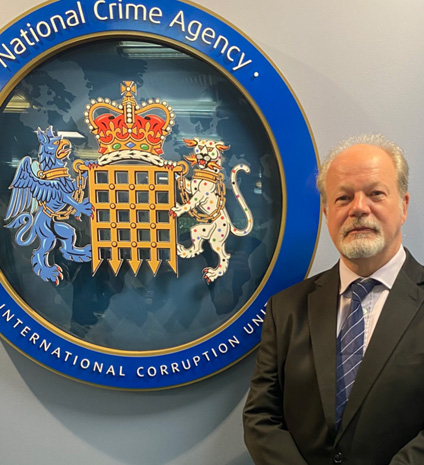
Head of International Corruption Unit
National Crime Agency

Head, Legal Division
Anti-Corruption Commission of Bhutan

Head of Preventive Measures & Inquiry Department,
Prosecutor's Office of the Republic of Azerbaijan
In this break-out session, participants will engage in discussions focused on corporate liability and assessing corporate compliance in bribery and corruption cases. They will explore the challenges presented by evolving corporate liability frameworks in the Asia Pacific region, including failure to prevent bribery offences, and examine effective approaches to evaluating compliance measures. Participants will also discuss how these programmes can serve as a defence or mitigating factor and compare internal and external guidance within their agencies.
Non-trial resolutions (NTRs) have become a pivotal mechanism in addressing complex transnational bribery and corruption cases, facilitating the resolution of such cases without the need for full court proceedings. NTRs, based on negotiated agreements between an accused company or individual and prosecutorial authorities, are praised for their efficiency, transparency, and potential to incentivise self-reporting and corporate governance reforms. The OECD has observed that about 80% of transnational bribery cases are resolved through these mechanisms, reflecting their significant role in modern anti-corruption efforts. The increasing recognition of NTRs among ACI economies, including recent implementation in Singapore and pending reforms in Thailand, highlights the global shift towards adopting these frameworks. This session will delve into the benefits, challenges, and best practices associated with NTRs, offering insights into how ACI economies can enhance their anti-corruption enforcement through such mechanisms.

Director General
Department of Investigation
Anti-Corruption Commission of Bhutan

Legal Analyst
Anti-Corruption Division, OECD

Chairman of Public Expenditure Review
Ministry of Finance, Cook Islands
